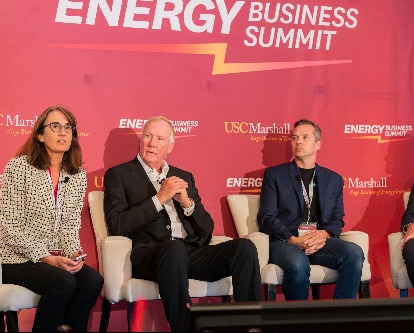“Marshall is a business school, so we have an opportunity to be in that middle ground, where we’re really excited about the potential of these technologies for business, we’re optimistic about what they can do for society, but we’re also cautious about the effects and take a long-term approach to making sure these technologies are being used wisely.”
The Center’s research and activities are supported in part with a $750K Knight Foundation grant. The Neely Center was created in 2015 thanks to a generous endowment by USC Trustee Jerry Neely and his wife Nancy.
As director, Fast will oversee the mission of the center, which includes research, education, and events that will illuminate three areas of critical importance: social media and its effects on societal health; the use of AI to manage people; and the emerging metaverse.
Among its initiatives, the Center aims to create a “social media well-being index” that will track user experiences across social media platforms. In a second area, scholars will study how decision-making algorithms affect organizations, and how employees respond to HR decisions using such tools. Fast also has plans to bring in the best interdisciplinary minds to discuss the so-called metaverse and identify opportunities and risks early on in its development.
“There's a real opportunity for Marshall and the broader USC community to be at the center of some really important conversations about our future,” he said.

